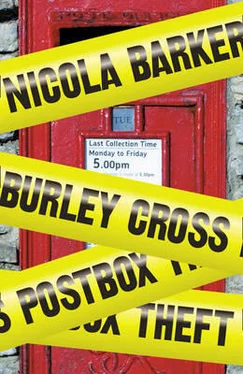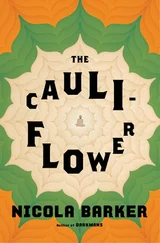They’re by Tatsuro Kiuchi. He’s a very reputable Japanese digital illustrator. Perhaps I’m getting a little picky in my old age, but I can’t help feeling like there’s something a fraction ‘hollow’ about the set, in general.
Is it just the preponderance of blue? I’ve never been a great fan of blue tones at Christmas. I much prefer the warmer, interior tones of red and green. Of course I fully accept that those perennial Christmas themes of snow and ice demand a blue/white palette, but I loathe the fashion for blue trees and blue lights at the moment. People hang them all over their houses nowadays — outside, too! I fear we’ve become terribly American since you were last in the UK. You’d probably hardly recognize the old place!
Call me an old grump if you like, but when I see blue lights I immediately think ‘emergency’: Police! Fire! Ambulance! I certainly don’t think ‘festive’ or ‘relaxation’.
It surely must have some bearing on the issue (the stamp issue — no pun intended!) that they don’t celebrate Christmas in Japan. It isn’t even a proper holiday over there.
On a somewhat more positive front, my Tristan da Cunha collection is almost ‘definitive’, now. The 1995 Queen Mother’s Birthday arrived on Friday via Stanley Gibbons. I’m very pleased with it and am currently only hankering after the 1977 Naval Ships/Crests and the 1973 Anne and Mark’s Wedding (neither very expensive — I’ll probably order them for my birthday in late Feb).
Thanks so much for your letter. It was funny and informative, as always. I was delighted to hear that the long-anticipated talk by the man from the Organic Soil Assoc. went down so well on the island. I can’t pretend I’m not eaten up with jealousy that he got government support to fund his trip over there.
From your brief précis I didn’t get the impression that he had much of great interest to offer on the subject of soil erosion. This was definitely a missed opportunity. There’s so much to be said (and done) on the matter — and not just in Tristan da Cunha, but worldwide (Africa! Asia! India! Even here, in the UK!). Imagine the differences we could make, environmentally, if we just put an end to tilling, if we finally resolved to stop using crop residue for other purposes (like fencing, animal feed etc.) and opted to proceed the natural way.
I know seed-drilling technology can appear prohibitively expensive at the outset, but just consider the money to be saved, in the long term, on diesel and fertilizer! Our topsoils are so vulnerable, so fragile. It’s taken literally millions of years for them to evolve on this planet, and yet what people seem signally incapable of comprehending is that once they’re gone, they’re gone for good (unless you have a spare million or so years to wait around for them to gradually reconstitute, that is!).
World populations are growing at an alarming rate, millions go hungry every year, more and more pressure is being placed on the remaining soil stocks we have left, but still we persist in using farming methods whose long-term (even short-term) prognosis leads to erosion and sterility. This isn’t just carelessness or stupidity, it’s nothing short of criminal.
As I always like to say: people — the general public — really need to stop thinking of soil as just ‘muck’ or ‘dirt’ (denigrating it, in other words) and to start realizing that it’s the foundation, the very lifeblood, of this beautiful earth we inhabit.
Part of the problem has always been that we (and by ‘we’ I mean governments, the big corporations etc.) are addicted to short-termism. That, and the fact that we invariably have a vested interest in shoring up an unsatisfactory situation (and thereby cheerfully maintaining the status quo). What exactly am I getting at here? Well, that real money — serious money — is always made from supplying treatments, not from inventing cures. Where’s the logic in solving a problem if it means that the numerous institutions/industries that have been carefully developed over the generations to support it (pretending to counter it, but actually only sustaining it) will be rendered obsolete?
I was listening to a programme on the radio the other week about the huge increase in cases of Type 1 Diabetes, worldwide, and the various ways politicians and scientists have set about responding to this crisis (for the record, your average diabetic requires approx. £1 million in healthcare spending during the course of their lifetime). It became increasingly obvious (as the report progressed) that scientists were only really getting substantial, private and public funding to try and improve the kinds of treatments already in existence, not to grapple with the fundamental problem outright. Because where’s the profit to be had in finding a cure for something?
Let’s think about it this way: if your local street ‘dealer’ suddenly found himself in possession of a pill to cure heroin addiction (in one fell swoop), would he opt to sell it to his regular clients, even if they were willing to pay ten times as much money for it as for their regular hit? Not likely! Even your lowliest street punk understands the rudiments of capitalist economics! Supply and demand! These same principles apply across the board, not least to farming and to soil.
Sorry, Teddy — here I go again, banging on, relentlessly, about my favourite topic! You must be heartily sick of my incessant rantings by now! In fact you’ve probably accumulated about as much ‘core’ knowledge on this subject as I have after all these years (merely by acting as my sounding-board!). On that basis, there’s no ‘earthly’ reason (Oops! A little inadvertent geological joke!) why you shouldn’t host a public meeting yourself to discuss this vital issue in an island context (I can certainly supply you with a good set of crib notes!) instead of patiently waiting for me to turn up and host one.
If only Joanna’s sister hadn’t moved to Stuttgart… She insists on seeing her twice a year, and our already frugal holiday funds are rapidly depleted on flights and hotels (Pam, her sister, lives in a one-bedroom flat). As things stand (and much as this grieves me), I can’t see me fulfilling my childhood dream of setting foot on ‘The Loneliest Island in the World’ any time in the foreseeable future.
Curious to think that it’s been all of forty-four years since we last saw each other, face to face. I remember waving a cheery farewell to you from the docks in Southampton like it was only yesterday (the memory of that moment remains crystal clear!); a blithe twelve-year-old, so full of hope and heat and heart and confidence… Where’d it all go, eh?!
I suppose I shouldn’t let myself get too down in the mouth about it. These things are generally always best left in the hands of the Gods (‘Insh’allah’ as the Muslims are wont to murmur). If it hadn’t been for a series of entirely unpredictable and earth-shattering events, after all (an erupting volcano, no less!), we would never have met up — or have become such firm friends — in the first place. So who am I to pronounce with such certainty (or such resignation) on what the future may hold?
‘The Loneliest Island in the World’… I couldn’t help but smile wryly to myself as I wrote that down just now. Because I don’t mind admitting — at least not to you, Teddy — that sometimes I feel rather like a lonely island myself (even the loneliest island, on the odd occasion!).
I shouldn’t complain. I have so much to be grateful for: good health, a loyal wife, a charming home. Burley Cross is such a beautiful place (a ‘chocolate-box’ village, to all intents and purposes), and I’ve grown to truly love West Yorkshire over the seven years since Joanna and I first moved here, but I must confess that I sometimes struggle to find people I can really talk to, people I can exchange ideas with or truly ‘open up’ to.
Читать дальше
Конец ознакомительного отрывка
Купить книгу












